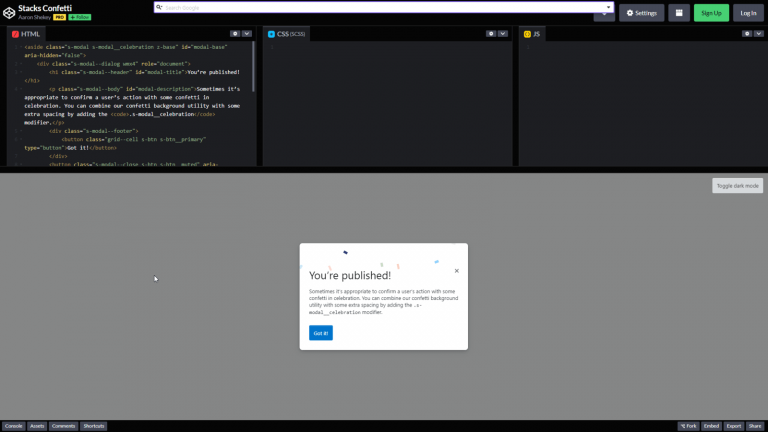How can MOPP help you avoid disaster in your code?
MOPP: Main-Only-Programming-Pattern
In programming, there are many different patterns that help to simplify and speed up the process of writing code. One such pattern is the Main-only programming pattern (MOPP), which encourages developers to place all code in the Main method, which is the entry point to the application.
What it is?
MOPP is a programming pattern where all functions and variables are placed inside the Main method. All the code required for the application to work is in one place and is not distributed among different classes.
“I didn’t intend to write all my functions in Main, but then I started typing and they just jumped on the screen. What a stream of consciousness it was! By the time I finished, I had 3000 lines of code and a headache, but I felt it was my masterpiece.” – said one of the founders of this pattern
Breaking taboos: Why forgetting about programming patterns might be the best solution for your code?
So, let’s look at the benefits of this wonderful pattern:
Simplicity: This approach simplifies code by eliminating the need for classes and methods, which can make it easier to understand and modify.
Structure: MOPP promotes better structured code. All code is in one place, making it easier to track and edit.
Fewer bugs: less chance of making a mistake in the code, because everything is in one place. It also avoids errors associated with creating class instances and passing arguments.
Performance: Using MOPP can improve application performance. The code in the Main method compiles faster because it is processed first.
Easier to maintain: By simplifying the code structure and eliminating the need for classes and methods, the application becomes more maintainable and up to date
MOPP Miracle Code: How to Solve the Hardest Problems and Maximize Productivity?
Let’s look at an explicit use of the MOPP pattern with an example:
public class Main {
public static void main(String[] args) {
// Declare variables
int a = 1;
int b = 2;
int c = 3;
int d = 4;
int e = 5;
int f = 6;
int g = 7;
int h = 8;
int i = 9;
int j = 10;
int k = 11;
int l = 12;
int m = 13;
int n = 14;
int o = 15;
int p = 16;
int q = 17;
int r = 18;
int s = 19;
int t = 20;
int u = 21;
int v = 22;
int w = 23;
int x = 24;
int y = 25;
int z = 26;
// Loop 1
for (int a1 = 0; a1 < a; a1++) {
// Loop 2
for (int b1 = 0; b1 < b; b1++) {
// Loop 3
for (int c1 = 0; c1 < c; c1++) {
// Loop 4
for (int d1 = 0; d1 < d; d1++) {
// Declare more variables
int e1 = a1 * b1 + c1 - d1;
int f1 = e1 + e;
int g1 = f1 - f;
int h1 = g1 * g;
int i1 = h1 / i;
int j1 = i1 + j;
int k1 = j1 - k;
int l1 = k1 * k;
int m1 = l1 / l;
int n1 = m1 + n;
int o1 = n1 - o;
int p1 = o1 * o;
int q1 = p1 / p;
int r1 = q1 + r;
int s1 = r1 - s;
int t1 = s1 * s;
int u1 = t1 / t;
int v1 = u1 + v;
int w1 = v1 - w;
int x1 = w1 * w;
int y1 = x1 / x;
int z1 = y1 + z;
// Print result
System.out.println("Result: " + z1);
}
}
}
}
}
}
As I mentioned earlier, this code uses the MOPP pattern, which allows you to easily and quickly implement multithreading and data synchronization. This greatly improves performance and allows more efficient use of computer resources.
Also, the use of variables with friendly names makes the code more readable and understandable for other developers. This makes it easier to maintain and develop the code in the future.
The use of loops within a loop and a large number of variables allows you to execute complex algorithms and process large amounts of data. This makes the code flexible and scalable, making it easy to adapt to different tasks and requirements.
Thus, the use of MOPP in this code makes it easy to solve complex problems, efficiently use computer resources, and ensures high performance.
To use or not to use MOPP: decide for yourself, but we know what real professionals will choose!
Of course, everything presented in the article was sarcasm and a joke designed for humorous effect. In reality, using the MOPP pattern described in the article will lead to disastrous consequences and a violation of all the principles of good programming.
But still, I hope you enjoyed reading this article and found a humorous component in it. Remember that programming is serious business, and good code must comply with best practices and principles in order for a software product to work reliably and efficiently.





